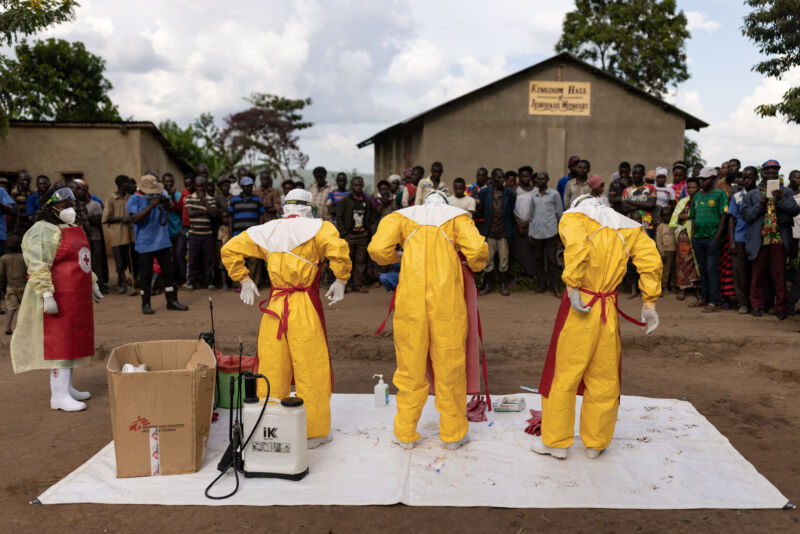
Concern is rising over the ongoing Ebola outbreak in Uganda that is now swiftly spreading in the densely populated capital city of Kampala. The outbreak is caused by a lesser-seen species of Ebolavirus, the Sudan virus, for which there is no proven vaccine or treatment.
Uganda’s Ministry of Health declared an outbreak on September 20, a day after a 24-year-old man from a rural area in central Uganda died of the disease. Since then, the virus has spread to seven districts in the country, with the ministry reporting a total of 109 confirmed cases and 30 deaths. Health workers accounted for 15 of the confirmed cases and six of the confirmed deaths. There are also unofficial reports of probable cases and deaths.
Health experts are particularly concerned about the spread into Kampala, which government officials reported only Sunday. As of Wednesday, the city of more than 1.6 million has seen at least 15 confirmed cases. Of the 15 cases, six are school-aged children from the same family.
According to Uganda Health Minister Jane Ruth Aceng, the children, another family member, and neighbors contracted the virus from an infected man who traveled into Kampala from an affected district to seek medical care. The six children reportedly attend three different schools in the city, and officials are tracing 170 school contacts amid hundreds of others in the outbreak.
“The penetration of Ebola in heavily populated areas creates a situation of rapid spread and is associated with sustained and protracted person-to-person transmission,” Aceng said in a statement Wednesday. “Urban Ebola transmission is complex, and the government will do all it takes to ensure control of transmission in the urban settings.”
In past outbreaks, the Sudan virus has had a fatality rate of between 41 percent and 100 percent. But it has been behind only seven of the 41 outbreaks listed on the World Health Organization’s website. The most recent of those outbreaks was in 2012, which was also in Uganda and involved seven cases with a fatality rate of 57 percent.
Most Ebola outbreaks—including the two largest—have been caused by the Zaire Ebolavirus species. It is the target of licensed Ebola vaccines, which have proven highly effective at preventing disease in past outbreaks. Over the years, vaccine makers have developed shots aimed at the Sudan virus as well. But with Zaire behind every Ebola outbreak since 2012, progress had stalled on the development.
Now, officials in Uganda have obtained batches of three experimental Ebola vaccines against Sudan to test during the current outbreak. In a tweet Wednesday, Aceng confirmed that the ministry would deploy the three vaccines “in the coming weeks,” hoping to inoculate 3,000 people initially—the contacts of 150 cases—within 29 days of exposure.
The three vaccine candidates include one developed by Oxford University, another by the nonprofit Sabin Vaccine Institute, and one from Merck, which recently discovered 100,000 undisclosed doses of its experimental vaccine in a freezer.
https://arstechnica.com/?p=1893454

